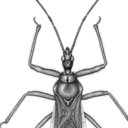The genus Polygonatum: A review of ethnopharmacology, phytochemistry and pharmacology.
Nøgleord
Abstrakt
BACKGROUND
The genus Polygonatum (Asparagaceae) comprises 71 species distributed throughout the temperate Northern Hemisphere. The medicinal plants of Polygonatum have been traditionally used as tonics in China, India, Pakistan, Iran and Japan, and have been demonstrated to be highly effective in clinical practice for treating age-related diseases, diabetes, lung diseases, fatigue, feebleness and indigestion.
OBJECTIVE
This paper aims to provide the links among traditional uses, chemical constituents, pharmacological effects and toxicity to support their therapeutic potential and uncover opportunities for future research.
METHODS
The relevant information on the genus Polygonatum was gathered from scientific databases (Google Scholar, Web of Science, SciFinder, ScienceDirect, ACS Publications, PubMed, Wiley Online Library, CNKI). Information was also obtained from online databases, books, Ph.D. dissertations and M.Sc. theses. The literature cited in this review dates from 1917 to June 2017.
RESULTS
At least 37 species and 1 variety of Polygonatum plants have been used as traditional medicine and functional food. The major chemical constituents of Polygonatum plants are steroidal saponins, triterpenoid saponins, homoisoflavanones, polysaccharides and lectins. A putative biosynthetic pathway of steroidal saponins and triterpenoid saponins has been established based on the compounds isolated from Polygonatum plants. The crude extracts and certain pure compounds from Polygonatum plants have shown a wide range of pharmacological effects such as anti-aging, anti-diabetic, anti-fatigue, and anticancer effects. The rhizomes of Polygonatum plants have a low degree of toxicity after processing.
CONCLUSIONS
Based on this review, some traditional uses of Polygonatum species have been confirmed by pharmacological studies, such as its anti-osteoporosis, neuroprotective, immunomodulatory, anti-diabetic and anti-fatigue effects. Most of the pharmacological effects of this genus can be attributed to its polysaccharides, saponins and lectins. However, to clarify the chemical differences that lead to the different traditional uses between "Huangjing" (derived from P. sibiricum, P. kingianum, P. cyrtonema) and "Yuzhu" (derived from P. odoratum), a systematic comparison of the small molecule compositions and polysaccharides of these four species is needed. In addition to these four species, other locally used medicinal Polygonatum species should be the subject of research, and the chemical and pharmacological relationships of these species should be investigated to expand the medicinal resources and standardize the use of Polygonatum species.


